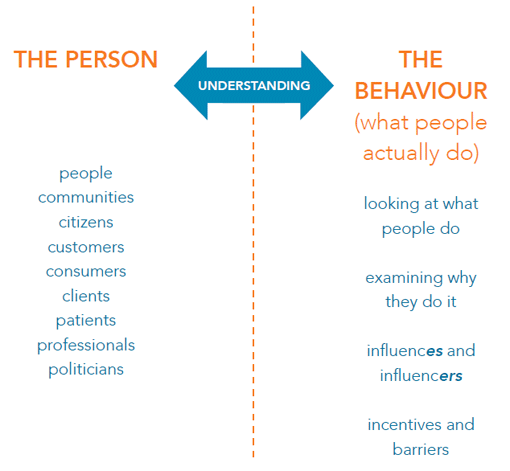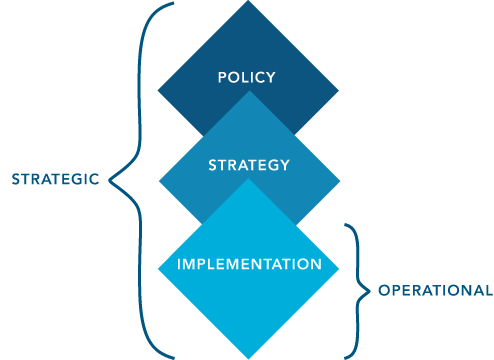
Social marketing is an approach used to develop activities aimed at changing or maintaining people’s behaviour for the benefit of individuals and society as a whole.
Combining ideas from commercial marketing and the social sciences, social marketing is a proven tool for influencing behaviour in a sustainable and cost-effective way.
It helps you to decide:
- Which people to work with
- What behaviour to influence
- How to go about it
- How to measure it
Social marketing is not the same as social media marketing. Find out more.
Approach
Social marketing is a systematic and planned process. It follows six steps

Behaviour
The goal of social marketing is always to change or maintain how people behave – not what they think or how aware they are about an issue. If your goal is only to increase awareness or knowledge, or change attitudes, you are not doing social marketing.
Benefits people and society
This is the value – perceived or actual – as it is defined by the people who are targeted by a social marketing intervention. It is not what is assumed to benefit them by the organisation that is trying to encourage the behaviour change.

A social marketing approach
Even if you don’t take social marketing any further, just considering these four questions will add value to your projects and policies.
- Do I really understand my target audience and see things from their perspective?
- Am I clear about what I would like my target audience to do?
- For my target audience, do the benefits of doing what I would like them to do outweigh the costs or barriers to doing it?
- Am I using a combination of activities in order to encourage people to achieve the desired action?
How social marketing helps

Policy: social marketing helps to ensure policy is based on an understanding of people’s lives, making policy goals realistic and achievable. Policy example: water rationing in Jordan
Strategy: social marketing enables you to target your resources cost-effectively, and select interventions that have the best impact over time. Strategy example: lung disease strategy in England
Implementation and delivery: social marketing enables you to develop products, services and communications that fit people’s needs and motivations. Delivery example: child car seats in Texas
Find out more
• Visit our Social Marketing Planning Guide
• Social marketing vs social media marketing



